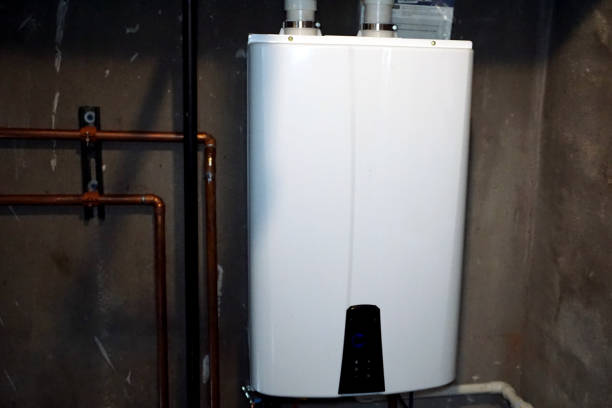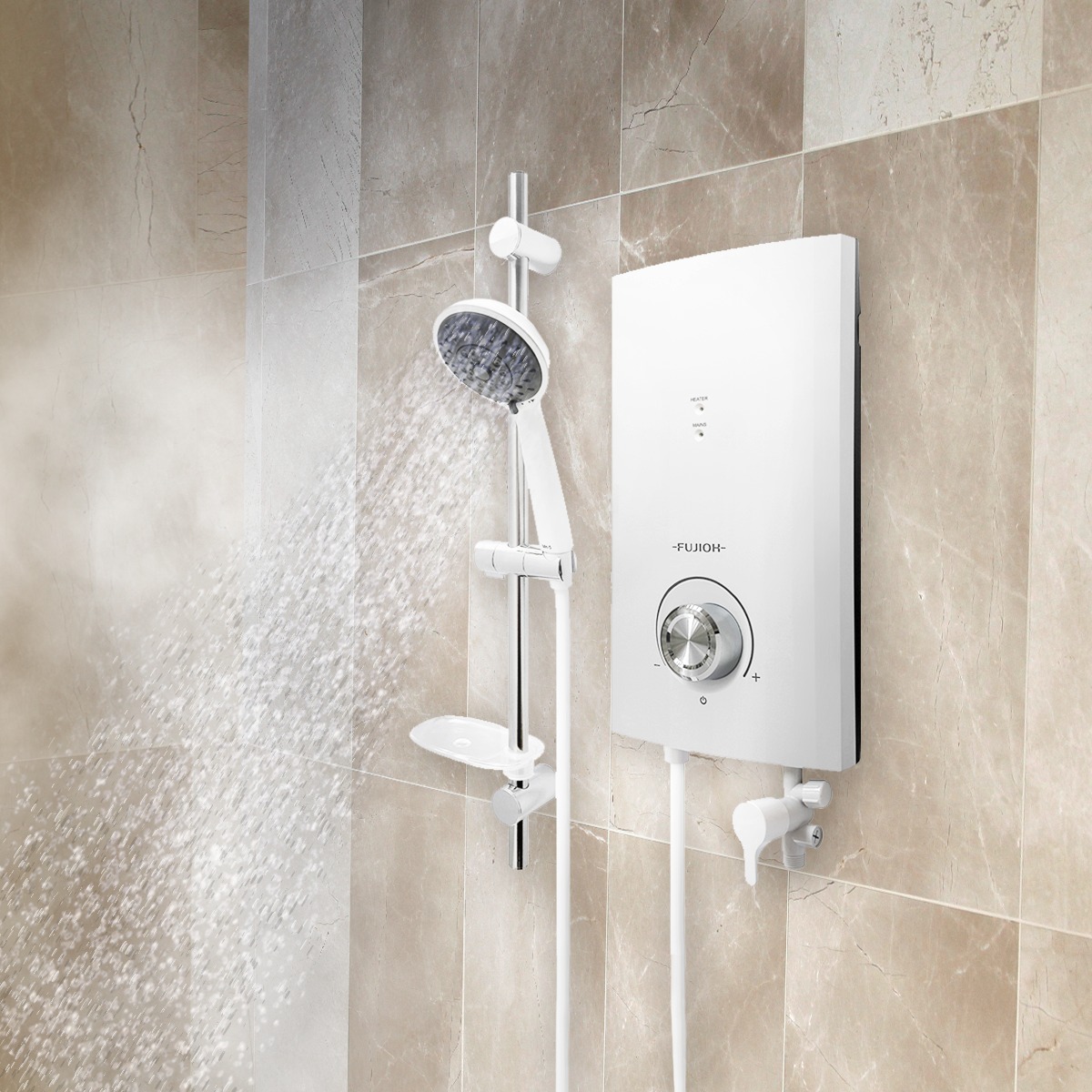What're your thoughts with regards to Six Benefits of a Tankless Hot Water Heater?

In a world where ease and performance reign supreme, it's not a surprise that homeowners are continuously in search of smarter means to manage their home's power consumption and comfort. One development that has progressively gotten appeal is the tankless hot water heater. Yet just what makes these systems attract attention from the conventional tank-based models most of us grew up with? Allow's dive in and discover the advantages of tankless water heaters, helping you make a decision if it's time to make the switch in your house.
Intro
Photo this: you step into the shower after a lengthy day, expecting a relaxing waterfall of hot water, just to be welcomed by icy beads because the last person used it all up. Sound acquainted? Traditional hot water heater save a fixed amount of warm water, meaning you're at the grace of that storage tank's supply. Tankless systems, on the other hand, warmth water on demand. No more running out mid-shower, say goodbye to fumbling with timetables simply to ensure hot water is offered.
Comprehending Tankless Hot Water Heater
What Are Tankless Water Heaters?
Tankless hot water heater, often called on-demand or instant hot water heater, supply warm water just as it's required. Instead of saving gallons of pre-heated water, these units kick into activity the minute you switch on the tap. Water passes through a heat exchanger, heating up in real-time, implying you obtain a nonstop flow of hot water without the requirement for a big tank resting idly by.
Just how Do They Differ from Typical Solutions?
Conventional heating systems hold a tank of warm water, utilizing energy to maintain that container at a constant temperature. Tankless devices remove the standing supply, cutting down on wasted power and the large footprint of a big cylinder. Basically, you're upgrading from a "stockpile" state of mind to a "made-to-order" method.
Common Kinds Of Tankless Units
Tankless hot water heater generally can be found in two ranges: gas and electrical. Gas models tend to provide higher circulation rates, perfect for larger homes, while electrical versions commonly serve smaller homes and are generally much easier to set up. Additionally, some systems are designed for point-of-use (offering one fixture) while others can handle the whole home's warm water needs.
Trick Advantages of Tankless Hot Water Heater
Energy Efficiency and Price Cost Savings
No more heating up a titan storage tank's well worth of water and keeping it warm all day. Tankless heaters reduce standby power losses, which can reduce energy expenses. While the initial price could be greater, the lasting savings often justify the financial investment.
3. Space-Saving Style
If your home is short on storage, getting rid of the large container frees up useful space. Tankless units are portable and can frequently be placed on walls, hidden in corners, or set up in tight utility closets without having all to oneself the whole room.
4. Longer Life-span
A well-maintained tankless hot water heater can outlast its tank-based relative. Traditional storage tanks could last 10-15 years, while tankless models can keep chugging along for twenty years or even more, making them a strong investment gradually.
1. Endless Hot Water Supply
Ever before needed to set up showers so every person gets their fair share of hot water? With tankless, that becomes a distant memory. As long as the heater's circulation capacity isn't exceeded, you can take back-to-back showers without turning into a popsicle.
5. Improved Water Quality
Saving water in a storage tank can in some cases bring about debris build-up or a somewhat "off" preference. With tankless systems, fresh water is warmed instantly, reducing the possibilities of debris accumulation and possibly supplying cleaner-tasting water.
Factors to consider Prior To Switching
Though the benefits are compelling, it's smart to consider a couple of elements prior to completely committing.
Assessing Your Home's Water Use Patterns
If your family at the same time makes use of multiple components with high hot water need, see to it the unit's circulation price satisfies your demands. Understanding your usage patterns aids you pick the ideal dimension and type of tankless heating unit.
Upkeep and Treatment Tips
Tankless systems are relatively reduced upkeep, but they aren't set-it-and-forget-it appliances.
Routine Cleansing and Descaling
Hard water minerals can build up in the heat exchanger, influencing effectiveness. Routine descaling (often advised yearly) maintains the device going for peak performance.
Annual Expert Assessments
A yearly checkup from an expert makes certain small problems are caught early. They'll assess the unit's efficiency, try to find leaks, and help maintain optimum effectiveness.
Preliminary Financial Investment Expenses
Tankless heaters generally come with a greater in advance cost. Between the device itself and potential installment adjustments, the initial expense may give you sticker label shock. However bear in mind to see it as a long-term financial investment.
Installation Needs
Depending upon your home's facilities, you may require extra electrical capacity or gas line upgrades. Ensure you recognize the installation needs and speak with a specialist to prevent shocks.
Ensuring Appropriate Air Flow
For gas designs, correct ventilation is important to securely eliminate exhaust gases. Ensure venting systems are tidy and appropriately mounted to prevent any prospective safety risks.
Contrasting Different Brands and Designs
Not all tankless water heaters are created equal.
Researching Reputable Manufacturers
Try to find trustworthy brands with a background of producing top quality systems. A trustworthy producer usually offers far better consumer assistance and longer warranties.
Installment: DIY or Specialist?
While some house owners enjoy taking on projects themselves, tankless installation could not be the very best time to break out the tool kit.
Benefits and drawbacks of DIY Installment
A DIY mount might save cash, however it includes threats. Inaccurate installment can bring about ineffectiveness or safety and security worries. If you come in handy and have experience, it might be practical-- however proceed with care.
Reading Testimonials and User Feedback
User testimonials and feedback from neighbors or close friends that have actually gone tankless can use important insights. Occasionally, real-life experiences can be more informing than advertising and marketing pamphlets.
When to Call a Professional Plumbing
For many, calling a pro guarantees whatever's done correctly. An expert plumbing technician recognizes regional codes, sizing demands, and venting criteria, reducing the risk of mishaps.
Maximizing Performance
You have actually bought a tankless unit-- currently optimize its performance.
Optimal Temperature Setups
Many people establish their units between 120-140 F. Changing the temperature can improve convenience and cost savings. Experiment to find a wonderful place that does not lose energy.
Coupling With Low-Flow Fixtures
Wish to stretch your device's abilities? Consider setting up low-flow showerheads and taps. They decrease water use, allowing your tankless system to deliver a stable stream of warm water without straining.
Ecological Effect
Tankless water heaters align with greener living objectives.
Decreased Carbon Impact
By using much less energy and just heating water as needed, tankless systems can decrease your home's carbon impact, lowering your ecological impact.
Saving Natural Resources
Less power consumption and much less lost warm water convert into less natural deposits being used, an ecological win-win.
That Benefits A Lot Of from Tankless Heating units?
The elegance of tankless heaters is that they can suit a range of households.
Huge Family Members vs. Solitary Owners
Big households could love the endless warm water supply, while solitary owners value the energy cost savings from not heating up an entire tank for simply someone's early morning shower.
House Owners with Limited Area
If your home is short on square video, losing the bulky storage tank maximizes room for other fundamentals-- or possibly simply more breathing space.
Eco-Conscious Consumers
Going tankless aligns with environmentally friendly values, guaranteeing you're not squandering power or sources.
Future Fads in Tankless Water Heaters
The globe of home devices is ever-evolving, and tankless water heaters are no exception.
Improvements in Modern technology
R&D is frequently enhancing warm exchangers, making systems much more efficient and sturdy. Future versions could be also quieter, much more compact, and much better suited for varying environments.
Smart Home Integration
Envision readjusting your water heater's temperature through an app or receiving upkeep alerts on your phone. As smart home tech developments, we'll see more connection and ease.
Verdict
Picking a tankless hot water heater is more than simply updating your home's warm water system; it's investing in long-lasting convenience, power performance, and a greener lifestyle. By considering your household's water use, being mindful of setup demands, and devoting to routine maintenance, you can delight in a stable stream of hot water without the luggage of a cumbersome storage tank. As modern technology progresses, you can anticipate also smarter, extra effective tankless options that not just make your life simpler however likewise profit the earth.
Why You Should Consider a Tankless Water Heater for Your Home
Energy Efficiency and Cost Savings
Tankless water heaters, also known as on-demand water heaters, heat water only when needed. This means they don't waste energy keeping a tank of water hot constantly. This efficiency translates into substantial cost savings on your monthly energy bills.
Endless Hot Water Supply
One of the significant advantages of tankless water heaters is their ability to provide a continuous supply of hot water. Traditional tank water heaters have a limited capacity and can run out of hot water, especially during peak usage times. In contrast, tankless water heaters can provide an endless stream of hot water, making them ideal for larger families or homes with high water usage.
Space-Saving Design
Tankless water heaters are compact and take up significantly less space compared to traditional tank heaters. They can be installed on walls, under cabinets, or even outside, freeing up valuable space in your home. This makes tankless water heaters a great option for smaller homes or properties with limited space for a traditional water heater.
Longer Lifespan and Lower Maintenance
Tankless water heaters typically have a longer lifespan compared to traditional tank heaters. They can last up to 20 years or more with proper maintenance. Additionally, tankless systems are designed with replaceable parts, which can extend their lifespan further and reduce long-term maintenance costs.
Environmentally Friendly
Reducing energy consumption not only saves you money but also benefits the environment. Tankless water heaters contribute to a smaller carbon footprint by using less energy to heat water. Their energy efficiency and ability to minimize standby heat loss make them an eco-friendly choice for environmentally conscious homeowners.
Customized Temperature Control
Tankless water heaters offer precise temperature control, allowing you to set the desired temperature to meet your specific needs. This level of customization ensures you always have water at the perfect temperature for your comfort and usage requirements.
https://beantownservices.com/blog/consider-tankless-water-heater-for-your-home

We hope you enjoyed our section about Pros and Cons of Tankless Water Heater. Thanks for taking time to read through our article. Appreciated our blog entry? Please share it. Help others find it. Thank-you for taking the time to read it.
More Details